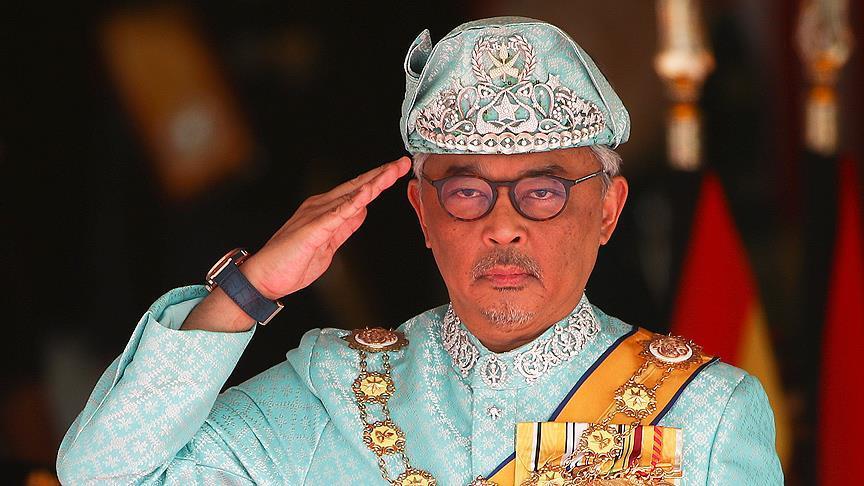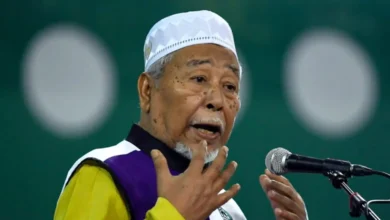‘King’s decision on state of emergency set a precedent’
 The Yang di-Pertuan Agong’s decision to reject the government’s call for a state of emergency has been described as a crucial development in the role of a constitutional monarch in Malaysia.
The Yang di-Pertuan Agong’s decision to reject the government’s call for a state of emergency has been described as a crucial development in the role of a constitutional monarch in Malaysia.
Political, constitutional and legal experts said this in the wake of Al-Sultan Abdullah Ri’ayatuddin Al-Mustafa Billah Shah’s decision yesterday on there being no necessity for such a proclamation as requested by Prime Minister Tan Sri Muhyiddin Yassin.
Political analyst and law lecturer Professor Dr Nik Ahmad Kamal Nik Mahmood, from the International Islamic University, sees it as an important development in regard to the tenets on the role of a constitutional monarch in Malaysia.
“What is important from the decision is that the king has refused the advice of the prime minister in regard to the declaration of a state of emergency.
“This goes against the established principles of law that the king acts on the advice of the prime minister when a state of emergency is requested.”
He said as per Article 150 (1) of the Federal Constitution, it was suggested that the king might have acted on his own discretion.
The article reads: “If the Yang di-Pertuan Agong is satisfied that a grave emergency exists whereby the security, or the economic life, or public order in the federation or any part thereof is threatened, he may issue a proclamation of emergency making therein a declaration to that effect.
“The phrase ‘is satisfied’ connotes discretion. I believe that the words have been given a new meaning this time,” he told the New Straits Times.
Asked if the prime minister could still stand firm in his views to proclaim an emergency or prorogue Parliament following the king’s decision, Nik Ahmad said though it was possible, there was a high likelihood that this would not be the case.
“The convention is that the king acts on advice.
“There is a likelihood that the king would agree, but just wait and see.
“There is no point to prorogue because the 2021 Budget would not be passed and next year, the government’s machinery could not function (without funds).
“It is Al-Sultan Abdullah who puts his royal seal (of approval) to the proclamation and when he does not agree, it will be a no-go.”
He added that the decision, which was lauded by many, also showed that His Majesty listened to the views of the people, to analyse and consider seriously before agreeing to a request from the government.
It was also an indication or signal to the government to deal with challenges by way of a more acceptable measure, rather than through a drastic decision to declare an emergency, he said.
“Besides, it is a signal to all other politicians to think about the welfare of the people before striving to gain political advantages in the light of the worsening economic situation and increasing threats from the pandemic.
“The king is calling on politicians to give priority to the interest of the rakyat, rather than raise issues for political mileage.”
Political analyst and senior fellow with the Singapore Institute of International Affairs Dr Oh Ei Sun said there were different, perhaps equally valid, opinions in constitutional interpretation as to whether the king could exercise discretion in proclaiming an emergency or would have to invariably follow the advice of the prime minister.
He said the non-proclamation by the king sets a precedent in favour of the latter’s interpretation.
“So it adds another layer of checks and balances against arbitrary, anti-democratic acts by the government of the day.
“I think the rulers and the overwhelming majority of the people are of the opinion that the pandemic, though serious, does not justify the suspension of democratic politics.
“That would be a huge, further step backward for a country that was substantially democratised only two years ago, but was essentially politically regressed earlier this year.”
He added that the decision showed that king had strong belief in the ability of the government under the leadership of the prime minister to continue implementing policies and enforcement actions to curb the Covid-19 transmission.
Constitutional expert Associate Professor Dr Shamrahayu Abd Aziz said the decision showed that the king had deliberated Muhyiddin’s request with the rulers during their special meeting yesterday.
“The decision has been made through a serious and careful deliberation, so that we would not worry.
“The people’s interests and livelihoods would be given focus in any decision made.
“Although there were concerns that the king acts on the advice of the cabinet, but it is also important to realise and take into account that the king would ensure the institution of monarchy would not be influenced by politics, whether it’s is the government or opposition.
“The king, as the ultimate authority of the country and in his superior capacity in the federation, acts above politicians or political parties. This is because the institution of monarchy is given the trust by the law and constitution, in that it has to ensure whatever decisions made is for the ultimate importance of all people.
“Hence, as responsible citizens, we must have the belief that the king is doing the best for the people and the nation.”
Lawyer and constitutional legal expert Nizam Bashir said there were two schools of thought where Article 150 was concerned.
He said one school of thought took the position that the power to declare an emergency in Article 150 was a discretionary power of the king as per the phrase “in any other case mentioned in this Constitution” as contained in Article 40(2).
The other, he said, involved the power to declare an emergency, which as per Article 150 is a non-discretionary power, that is Al-Sultan Abdullah should act on the advice of the prime minister.
“There are cases that seem to support the latter school of thought and affirms that the king is a constitutional monarch, bound by the constitution to act at all times on the advice of the cabinet, as seen in Madhavan Nair v Government [1975] 2 MLJ 286 and Teh Cheng Poh v PP [1979] 1 MLJ 50.”
However, Nizam said that when considering those cases, one should do so without losing sight of the precise words used in Article 150(1) and crucially in Article 150(8) of the Federal Constitution.
Among others, Article 150(8) states that the satisfaction of the king mentioned in Clause (1) and Clause (2B) shall be final and conclusive and shall not be challenged or called into question in any court on any ground.
Secondly, he said, one should take into account the observations of the Federal Court in Stephen Kalong Ningkan v Government of Malaysia [1968] 1 MLJ 119, which in essence held that it is the king alone who decides whether a state of emergency, wherein the security or economic life of the federation was threatened, existed and that judgment, broadly speaking, was non-justiciable.
“Put more succinctly, if the king is satisfied that there is no necessity, for the time being, to issue a proclamation of emergency, then that is the end of the matter.” Nst





You must be logged in to post a comment.